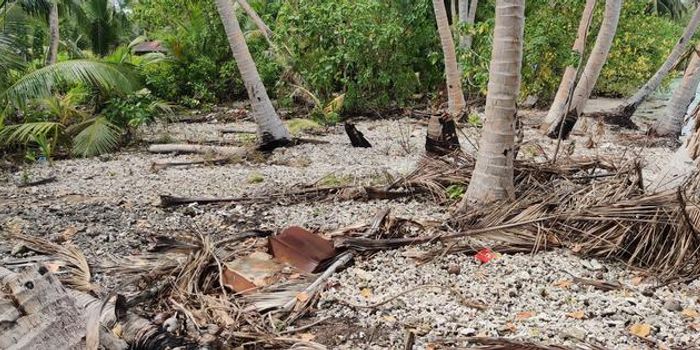Using Old Cell Phones to Fight Illegal Logging in the Rainforest
Finding the right way to get rid of old cell phones can be tricky, but a nonprofit called the Rainforest Connection is here to help -- they use donated phones to find desforestation activities in the rainforest. Once logging is detected auditorily, the group contacts authorities, who can then investigate.
Phones used by this nonprofit are given an extra microphone to listen for industrial sounds in the forest. They are powered by solar cells and can pick up a chain saw’s rumble from up to about a mile away. Rainforest Connection Founder Topher White figured out how to add data-analysis capabilities to the phones’ computers so they can distinguish between sounds of mechanical incursion in the trees and the many natural noises of a bustling ecosystem. During early testing, White and forest rangers used the altered phones to catch the sound of chain saws. When they arrived at the source of the noise, they were able to verbally convince illegal loggers to stop, according to National Geographic. Over the past two years, the system has been used in Brazil, Cameroon, Ecuador, Indonesia and Peru, and it will soon be piloted in Bolivia.
We lose 18.7 million acres of forests annually, the World Wildlife Fund reports. Illegal activity makes up 50 to 90 percent of logging in many tropical countries, according to INTERPOL’s Law Enforcement Assistance for Forests, or Project LEAF. Efforts to counteract these activities can have a positive effect on the local communities of both wildlife and people.
Forest loss threatens the creatures that live in them and also contributes significantly -- about 17 percent -- to the greenhouse gas emissions that fuel climate change, according to National Geographic.
“I just kind of thought it was about protecting the small areas and animals. But no, [deforestation is] actually one of the biggest contributors to climate change,” White told National Geographic. In 2015, he was a National Geographic Emerging Explorer. This program recognizes and supports young explorers in a range of disciplines, including science, storytelling and engineering -- White’s field.
Fighting deforestation is “also vital to supporting many of the world’s poorest communities, who rely on rainforests for food, shelter and livelihood,” The Rainforest Connection site states.
Rainforest Connection partners with indigenous communities fighting to preserve their forests and other conservation-focused groups to protect the Earth’s trees.
“If you can just help them do their job more effectively, then you can really cut into the climate change equation. It might be the cheapest, fastest way to stop it,” White says.
The Rainforest Connection team is also currently branching out -- they are using the phone system to detect signs of poaching in Africa and to document the sounds of the forests for science, creating a “bio-acoustic platform that lets you browse the ‘worldwide rainforest.’” They invite you to listen to the rainforest in real time with the Rainforest Connection app.
Sources:









